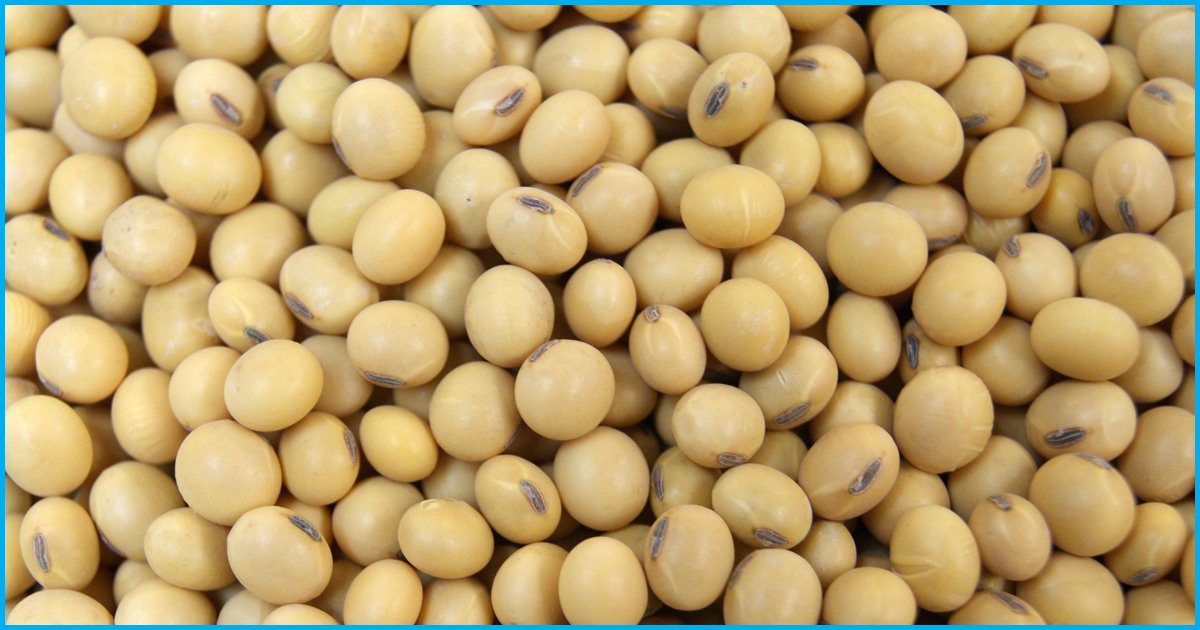
Farmers And Activists Allege India Imports GMO Soybean Illegally
9 Feb 2018 1:18 PM GMT
The food activists and farmers have made accusations stating that India is loading genetically modified soy seeds in the country. This practice is termed illegal due to the violation of Directorate General of Foreign Trade (DGFT) notification (2006).
DGFT notification prescribes the import of Genetically Modified Organisms (GMOs) in absence of permission from Genetic Engineering Appraisal Committee (GEAC). Other than GM cotton, no other crop has been permitted commercialization. The food crops are strictly prohibited from being involved in this practice.
Some food products have been found out to have genetically modified ingredients at some of the stores. In a TOI report, Kavita Kuruganti of GM-free coalition said, “We suspect packaged foods containing soya bean or corn seed imported from the US may be genetically modified, there is no segregation there. All these products should be checked for GM ingredients.” Although the checking of products is quite neglectful, the activist said.
Countries like US and Ukraine export soya bean seeds to India, United States Department of Agriculture (USDA) accepted it as well. “We have been importing soy seeds from US and Ukraine, for instance. US is known to have mostly GM soya bean (94%) and Ukraine had its soy exports been reported and cancelled by Russia for having GM contamination. Import of GM soya bean seeds has not been approved in India.” The coalition stated in letters to GEAC and DGFT since GM soybean seeds threaten the quality and state of the foods that aren’t GM.
The GEAC did approve the import of GM soya bean oil, after purification, but no approval was sanctioned on behalf of GM soya bean seeds. The USDA stated, “In recent years, India imported soybeans from Ethiopia, Benin, Ukraine, US, Nigeria and Djibouti. Imports were mostly for food use and as also a party for seed.”
Past cases:
Last year, two farmers and a seed distributor were arrested from Aravalli district of Gujarat for the sale of genetically modified herbicide-tolerant soybean. A farmer from Modasa town reported this to the officials. The government also captured 1,200 kg crop material. When tests were run on some samples in the laboratory, they were confirmed to be illegal GM soy.
Bhartiya Kisan Sangh (BKS) complained to GEAC about this. Although the GEAC replied to the RTI query by Kavitha Kuruganti saying, “no complaint has been received from Gujarat on HT soya bean illegal cultivation.” BKS further reported that their complaint is still not answered and the farmers affected have still not received any restitution.
Directorate General of Foreign Trade (DGFT) notification states:
The import of Genetically Modified Organisms (GMOs) and Living Modified Organisms (LMOs) is subject to following conditions:
- The import of GMOs / LMOs for the purpose of (i) R & D; (ii) Food; (iii) Feed; (iv) Processing in Bulk and (v) For Environment release will be governed by the provisions of the Environment Protection Act, 1986 and Rules 1989.
- The import of any food, feed, raw or processed or any ingredient of food, food additives or any food product that contains GM material and is being used either for industrial production, environmental release, or field application will be allowed only with the approval of the GEAC.
- Institutes / Companies who wish to import GM material for R & D purposes will submit their proposal to the Review Committee for Genetic Modification (RCGM) under the Department of Bio-Technology.
- At the time of import, all consignments containing products which have been subjected to genetic modification will carry a declaration stating that the product is genetically modified.
The activists had raised several health issues linked with GMOs. The herbicide, Glyphosate, which was in practice in Gujarat has been stated to be ‘probably carcinogenic’ by WHO’s cancer agency. Its use is prohibited in India on soybean by Central Insecticides Board and Registration Committee.
As far as the control and prohibition of GMOs and LMOs are concerned, no strict action has yet been enforced to make sure that it is completely boycotted and restricted from entering the Indian markets. The negligence on the part of government authorities and laidback attitude in the infiltration of GMOs soya bean seeds from departmental stores is further contributing to its spread.
After the Gujarat case of herbicide-tolerant soya bean seeds, the government should have made proper arrangements for avoiding such incidents again. They should have looked into the matter more critically. If all the farmers are as alert as the one who brought the case of GMO soya bean seeds in limelight in Gujarat, then they won’t have to suffer due to the contaminated crops.
 All section
All section













